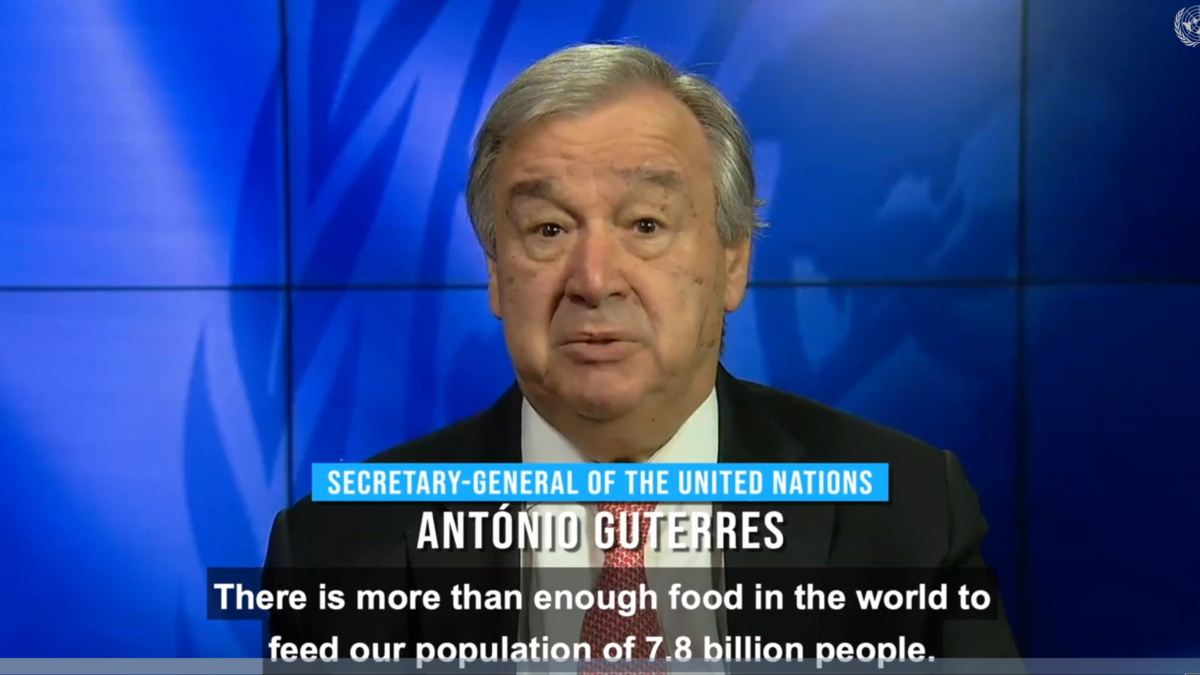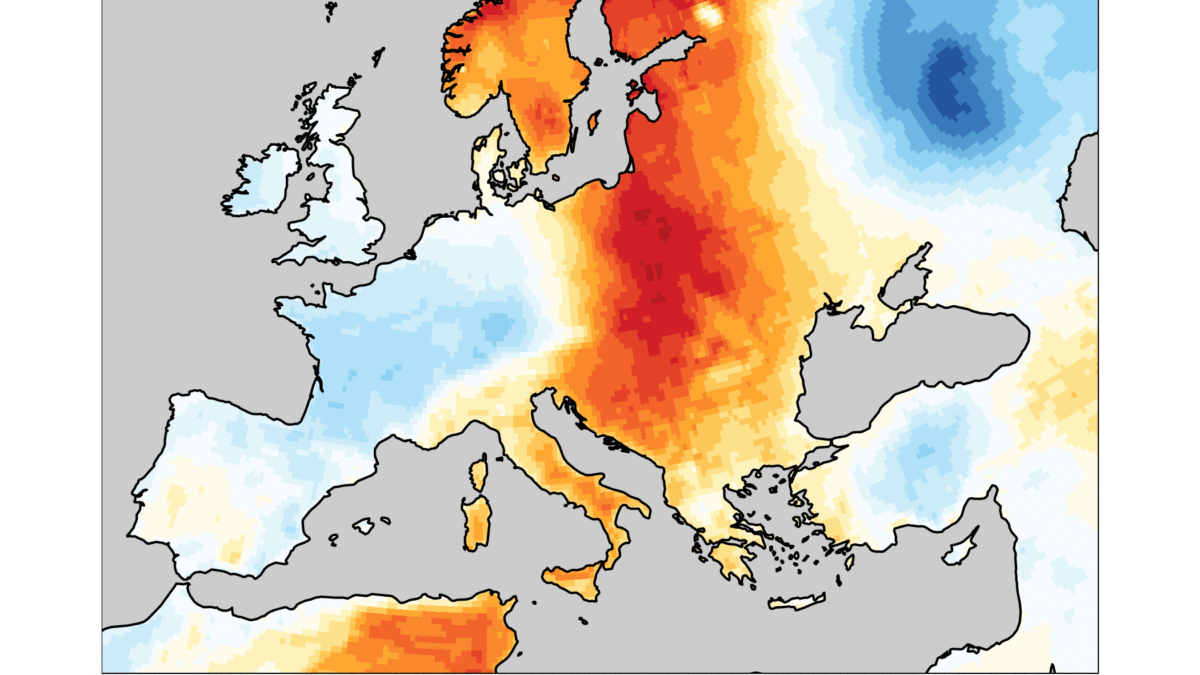Russia invasion in “world’s breadbasket” threatens global food supply – Number of undernourished people could increase by 8 to 13 million in 2022-2023 – “Wars mean shortages, and shortages mean price hikes”
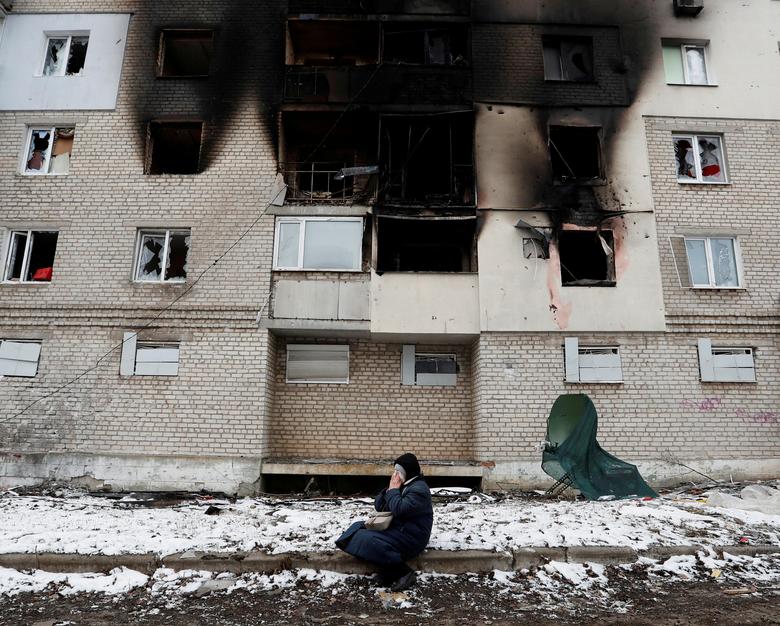
By Frances D’Emilio
11 March 2022
ROME (AP) – Poorer countries in northern Africa, Asia, and the Middle East that depend heavily on wheat imports risk suffering significant food insecurity because of Russia’s war in Ukraine, and the conflict is poised to drive up already soaring food prices in much of the world, the U.N. food agency warned Friday.
Ukraine and Russia, which is under heavy economic sanctions for invading its neighbor two weeks ago, account for one-third of global grain exports.
With the conflict’s intensity and duration uncertain, “the likely disruptions to agricultural activities of these two major exporters of staple commodities could seriously escalate food insecurity globally, when international food and input prices are already high and vulnerable,” said Qu Dongyu, director-general of the Rome-based Food and Agriculture Organization.
The U.N. agency, known as FAO, also noted that Russia is the lead producer of fertilizer, and a key fertilizer component — urea — has jumped more than threefold in price in the last 12 months.
There’s also the uncertainty over whether Ukraine’s wheat ready in June can be harvested as “massive population displacement has reduced the number of agricultural laborers and workers. Accessing agricultural fields would be difficult,″ Qu noted.
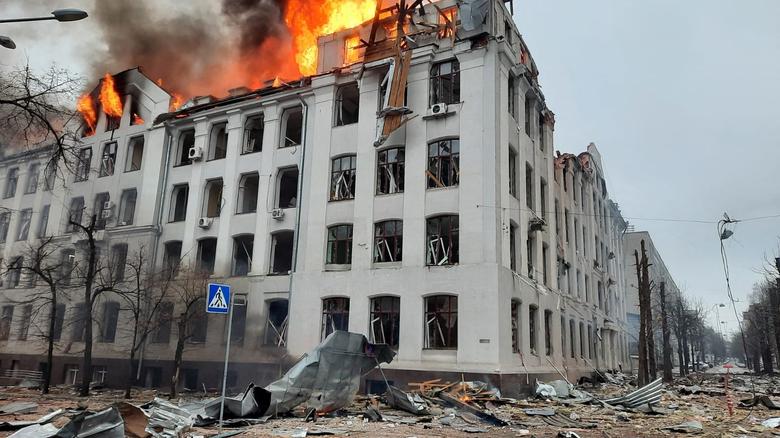
Ukraine’s ports on the Black Sea are shuttered, and its government this week banned the export of wheat, oats, millet, buckwheat, and some other food products to prevent a crisis in its own country.
The ban does not apply to its major global exports of corn and sunflower oil. It and Russia together supply 52% of the world’s sunflower oil exports. They also account for 19% of the world’s barley supply, 14% of wheat and 4% of corn.
“It is still unclear whether (other) exporters would be able to fill this gap,” Qu said, warning that wheat inventories are already running low in Canada.
The United States, Argentina and other wheat-producing nations are likely to limit exports as governments seek to ensure domestic supply, he said.
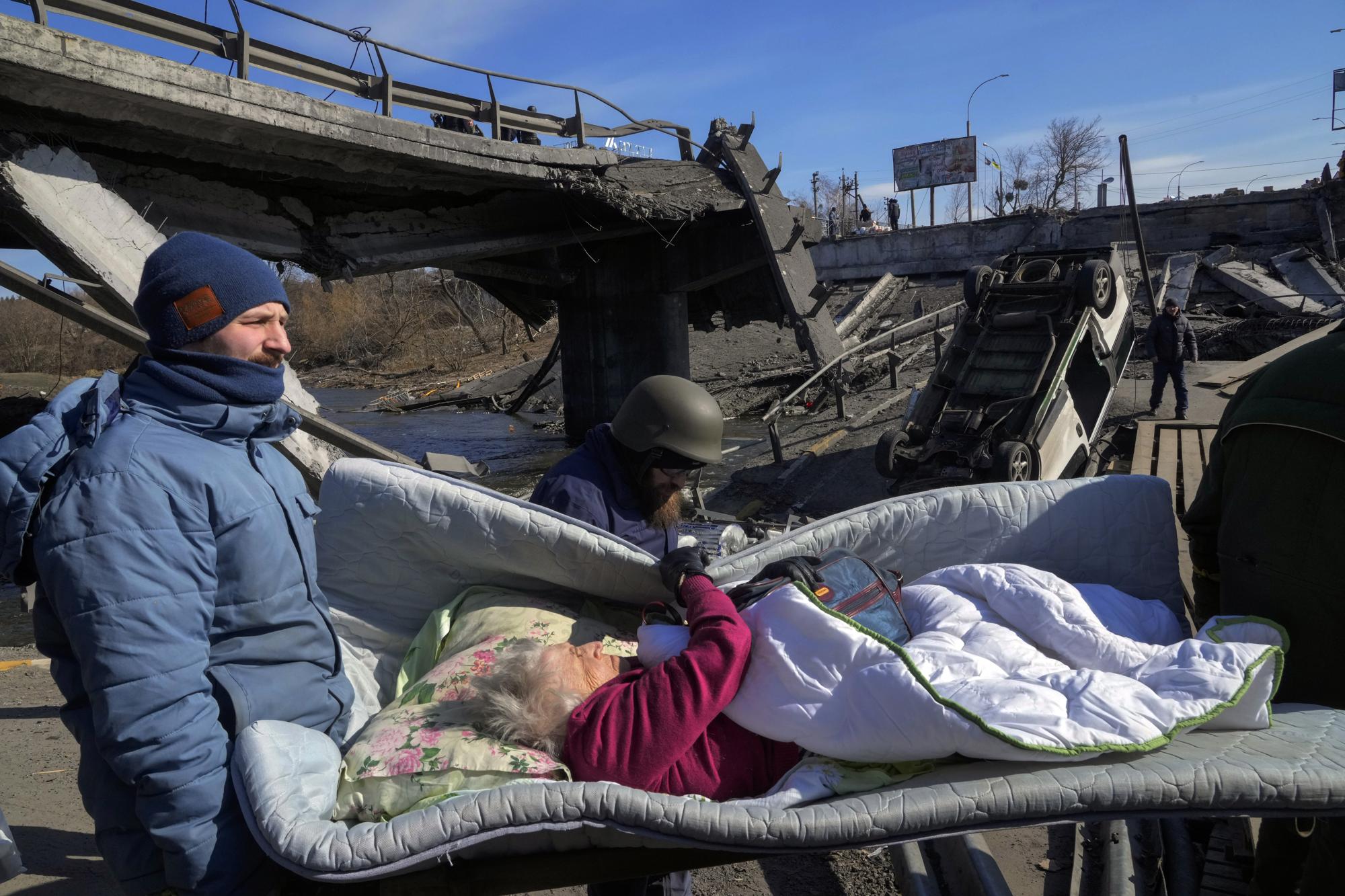
Adding to the pressure, countries that depend on Russian and Ukrainian wheat are likely to increase imports. Egypt, Turkey, Bangladesh and Iran buy 60% of their wheat from Russia and Ukraine. Also heavily reliant are Lebanon, Tunisia, Yemen, Libya and Pakistan.
In Libya, where civil war has ground on for years, the latest price increases for food staples have people worried.
Salah Alabar, a 37-year-old father of two, said bread and flour have increased by roughly 40% in his Benghazi neighborhood. Sunflower oil is 25% higher.
“This poses a challenge to families with minimum wages and even the middle-class families as expenses increase across the board,” he said.
The U.N. agency said its simulations suggest that “the global number of undernourished people could increase by 8 to 13 million” in 2022-2023, particularly in Asia, sub-Saharan Africa, the Middle East and North Africa.
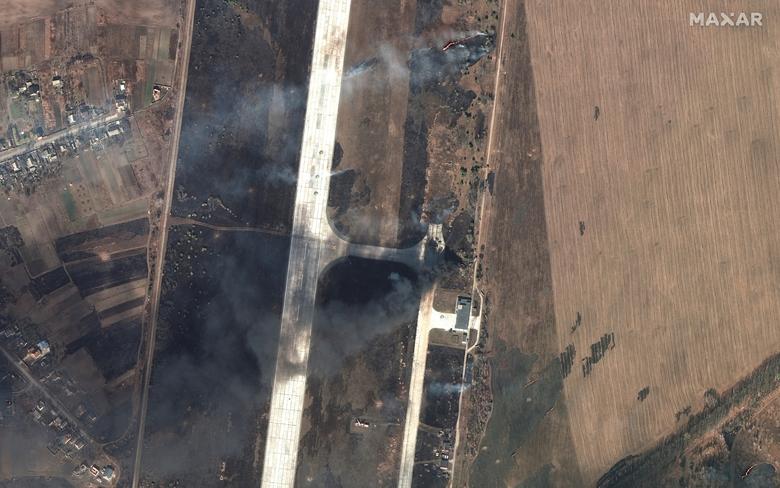
Potential for unrest could rise with the prices.
Mohammed Jassim, who owns a small bakery in Baghdad, said there was real concern in Iraq, where dozens of people held demonstrations in the past week over skyrocketing food prices.
“I am a consumer who buys staples for my business, and I have seen an increase of about 20% in the price of sugar and wheat,” he said. “If this keeps up, then I will be forced to raise my prices, and ultimately, the average citizen will be the one to pay for it.”
With shortfalls in grain and sunflower seed exports by Ukraine and Russia, “worryingly, the resulting global supply gap could push up international food and feed prices by 8 to 22% above their already elevated levels,” the FAO’s report warned. [more]
UN: War in Ukraine to hurt poor nations importing grain
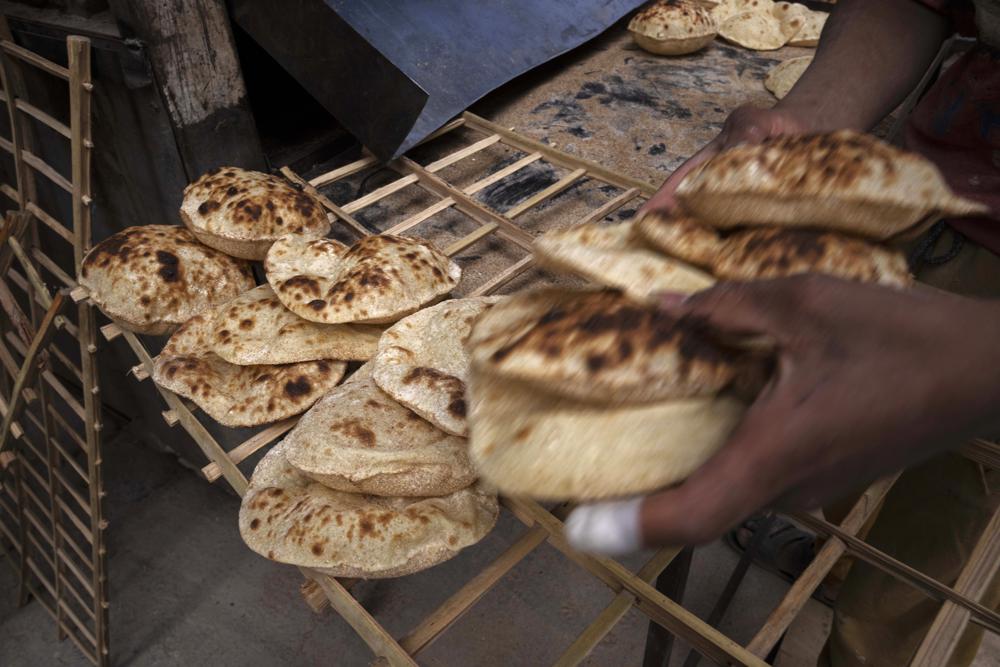
Russian war in world’s ‘breadbasket’ threatens food supply
By Joseph Wilson, Samy Magdy, Aya Batrawy and Chinedu Asadu
6 March 2022
BARCELONA, Spain (AP) – The Russian tanks and missiles besieging Ukraine also are threatening the food supply and livelihoods of people in Europe, Africa, and Asia who rely on the vast, fertile farmlands of the Black Sea region — known as the “breadbasket of the world.”
Ukrainian farmers have been forced to neglect their fields as millions flee, fight or try to stay alive. Ports are shut down that send wheat and other food staples worldwide to be made into bread, noodles and animal feed. And there are worries Russia, another agricultural powerhouse, could have its grain exports upended by Western sanctions.
While there have not yet been global disruptions to wheat supplies, prices have surged 55% since a week before the invasion amid concerns about what could happen next. If the war is prolonged, countries that rely on affordable wheat exports from Ukraine could face shortages starting in July, International Grains Council director Arnaud Petit told The Associated Press.
That could create food insecurity and throw more people into poverty in places like Egypt and Lebanon, where diets are dominated by government-subsidized bread. In Europe, officials are preparing for potential shortages of products from Ukraine and increased prices for livestock feed that could mean more expensive meat and dairy if farmers are forced to pass along costs to customers.
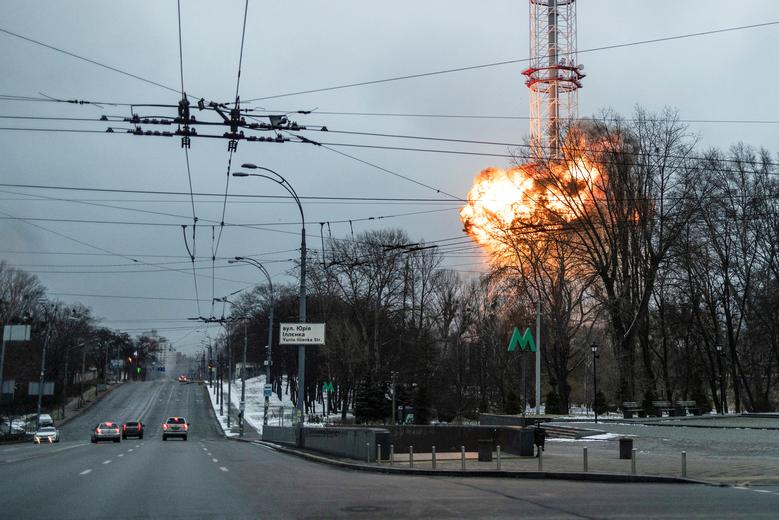
Russia and Ukraine combine for nearly a third of the world’s wheat and barley exports. Ukraine also is a major supplier of corn and the global leader in sunflower oil, used in food processing. The war could reduce food supplies just when prices are at their highest levels since 2011.
A prolonged conflict would have a big impact some 1,500 miles (2,400 kilometers) away in Egypt, the world’s largest wheat importer. Millions rely on subsidized bread made from Ukrainian grains to survive, with about a third of people living in poverty.
“Wars mean shortages, and shortages mean (price) hikes,” Ahmed Salah, a 47-year-old father of seven, said in Cairo. “Any hikes will be catastrophic not only for me, but for the majority of the people.”
Anna Nagurney, a professor of supply chains, logistics and economics at the University of Massachusetts Amherst, said, “Wheat, corn, oils, barley, flour are extremely important to food security … especially in the poorer parts of the globe.”
With Ukrainian men being called on to fight, she said, “Who’s going to be doing the harvesting? Who’d be doing the transportation?”
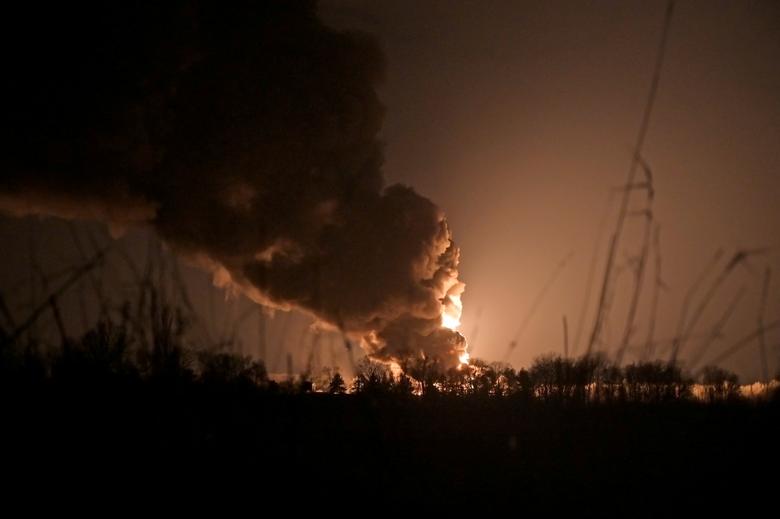
Egypt’s state procurer of wheat, which normally buys heavily from Russia and Ukraine, had to cancel two orders in less than a week: one for overpricing, the other because a lack of companies offered to sell their supplies. Sharp spikes in the cost of wheat globally could severely affect Egypt’s ability to keep bread prices at their current subsidized level.
“Bread is extremely heavily subsidized in Egypt, and successive governments have found that cuts to those subsidies are the one straw that should be kept off the camel’s back at all costs,” Mirette Mabrouk, a senior fellow at the Middle East Institute, wrote in a recent analysis.
War-ravaged Syria recently announced it would cut spending and ration staples. In nearby Lebanon, where a massive explosion at the Beirut port in 2020 destroyed the country’s main grain silos, authorities are scrambling to make up for a predicted wheat shortage, with Ukraine providing 60% of its supply. They are in talks with the U.S., India and Canada to find other sources for a country already in financial meltdown.
Even before the war threatened to affect wheat supplies in sub-Saharan Africa, people in Kenya were demanding #lowerfoodprices on social media as inflation eroded their spending power. Now, they’re bracing for worse.
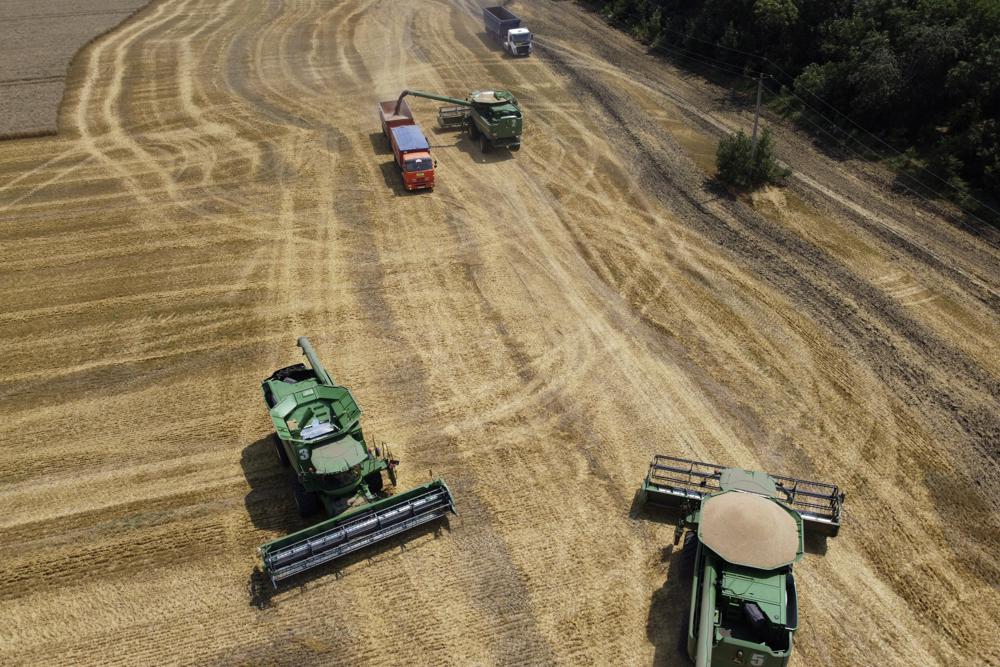
African countries imported agricultural products worth $4 billion from Russia in 2020, and about 90% was wheat, said Wandile Sihlobo, chief economist for the Agricultural Business Chamber of South Africa.
In Nigeria, flour millers believe a shortage of wheat supplies from Russia would affect the price of products like bread, a common food in Africa’s most populous country.
“All of us need to look elsewhere” in the future, said Tope Ogun with Honeywell Flour Mills Plc, one of Nigeria’s biggest flour milling companies. “We might not get what we need to, and there is likely going to be an increase in the price.”
Nigeria has taken pains to reduce its reliance on Russian grains, with farmers moving to plant more wheat fields to try to meet 70% of the country’s demand in five years, said Gambo Sale, national secretary of the Wheat Farmers Association of Nigeria.
“We have the land, we have the people, we have the money, we have whatever we can need in Nigeria” to grow wheat, he said. “All we need now is time.” [more]

